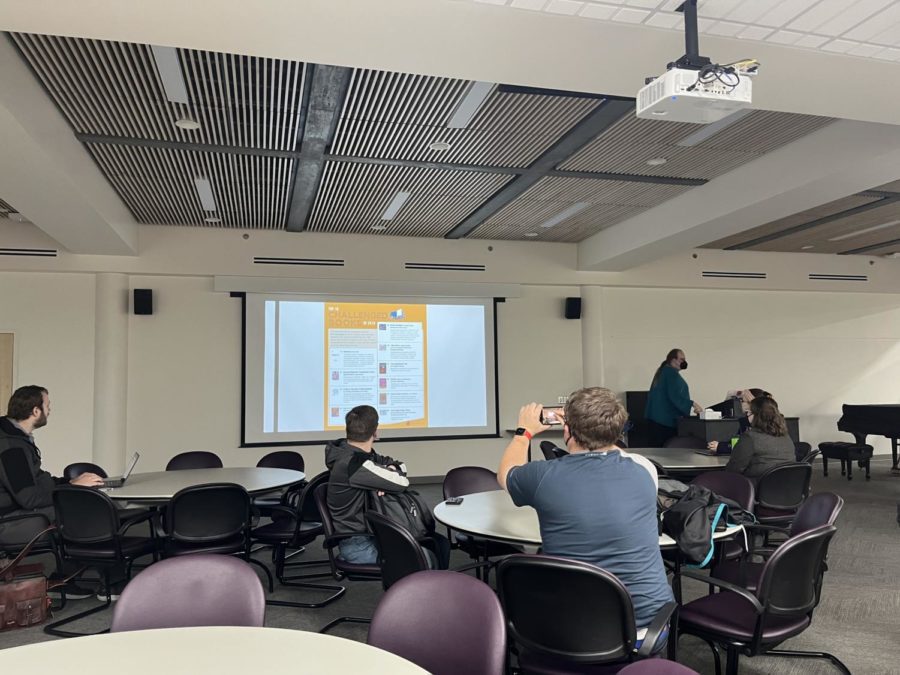
Epiphany is an on-campus literary journal that allows non-traditional students (students who are over 25, married, divorced, a veteran, disabled or a parent) to express themselves and improve their writing skills.
The idea for Epiphany came about when some WSU non-traditional students submitted their writing to Metaphor, an annual interdisciplinary journal, and could not get in.
While Epiphany is geared towards non-traditional students, any WSU student may submit to any of Epiphany’s special editions. The next overall theme is “Made of Steel” and the special-edition journals are focused on military families, the LGBTQ community and a survivor’s edition for sexual or physical assault victims.
Karen Lougy, a Spanish major on the editorial staff, said, “Epiphany gives non-traditional students the opportunity to have their work published, and gives them an outlet for creative expression.”
Students can submit up to three entrees per section in non-fiction, poetry, flash fiction and perspective and opinion piece. Each entry allows the student to enter a raffle to win an iPad.
Submissions for Epiphany must be met by the deadlines in order to be published. There are two deadlines per semester, allowing students the opportunity to submit their work. There are three online editions and one print edition to allow more students to get published.
Lauralee Kohl, the managing editor of Epiphany, said when students write stories for Epiphany, it also helps with their entire college career by giving very specific feedback on what needs to change.
“The most rewarding thing is to sit down with someone who you can see that they have a story in their head, but it’s just not sharp enough or it’s not going to get in elsewhere,” Kohl said, “and to work with them and help them find a way to rewrite it and give them the skills to be able to write is so amazing.”
Heidi Van Etten, an anthropology major on the editorial board said if a student has a problems with grammar or the story needs to be fixed, the Epiphany staff will help mentor the students through that process so that they can still get published even if English isn’t their strongest subject.
“It brings a sense of community and brings a sense of belonging and everyone realizes that I’m a Wildcat and everyone has their place and are accepted,” Kohl said.
Haga clic en enlace para leer este artículo en Inglés.







